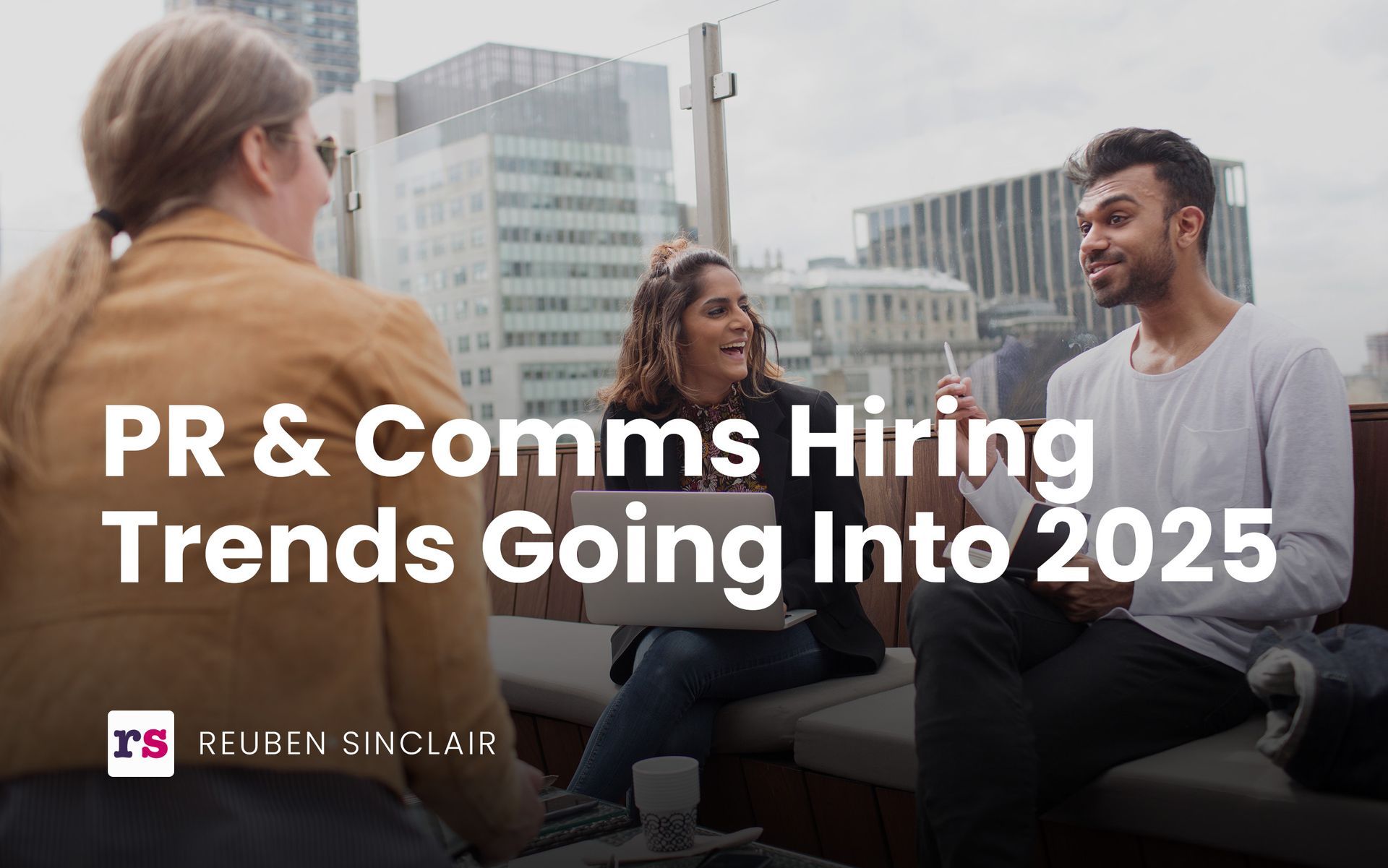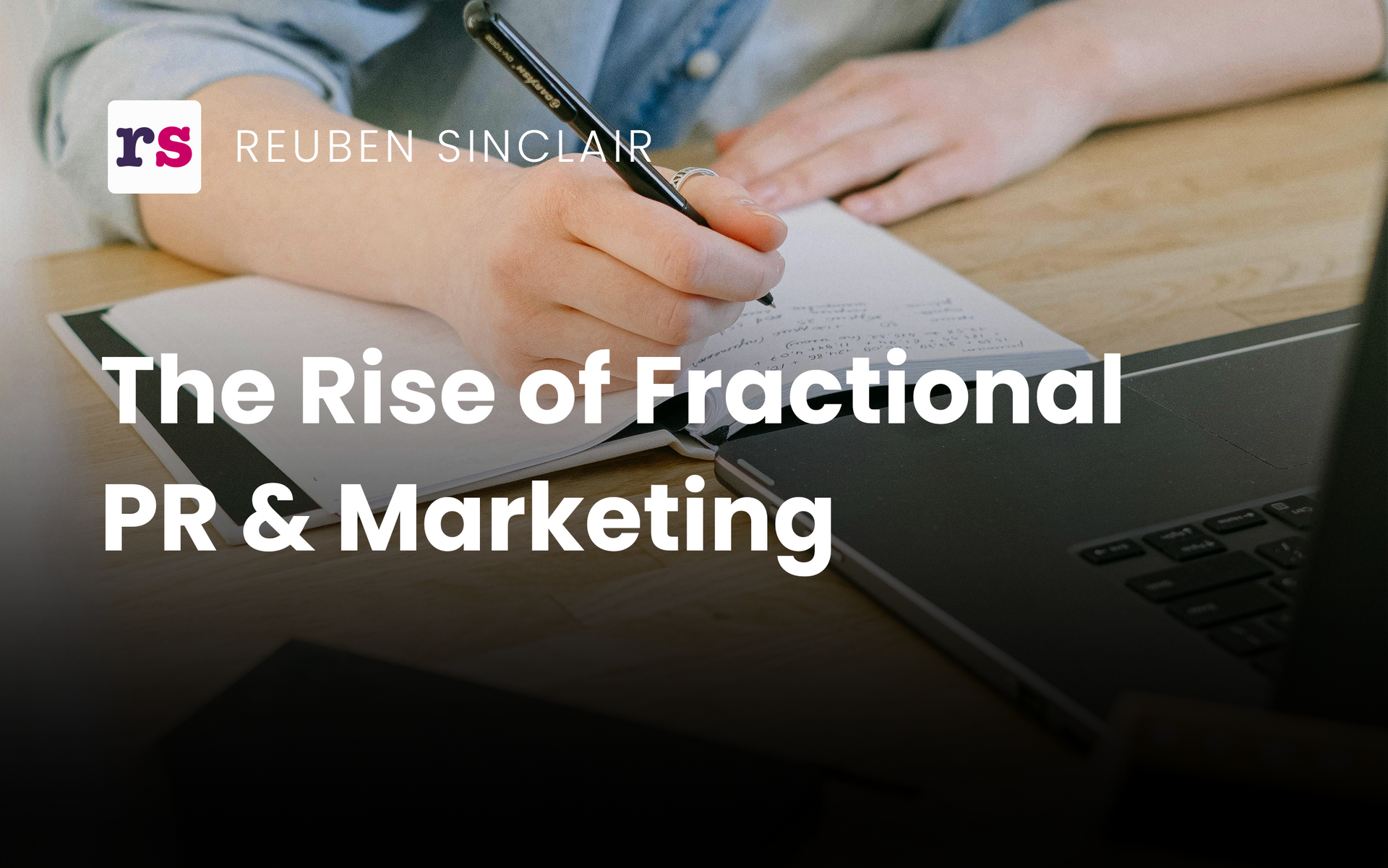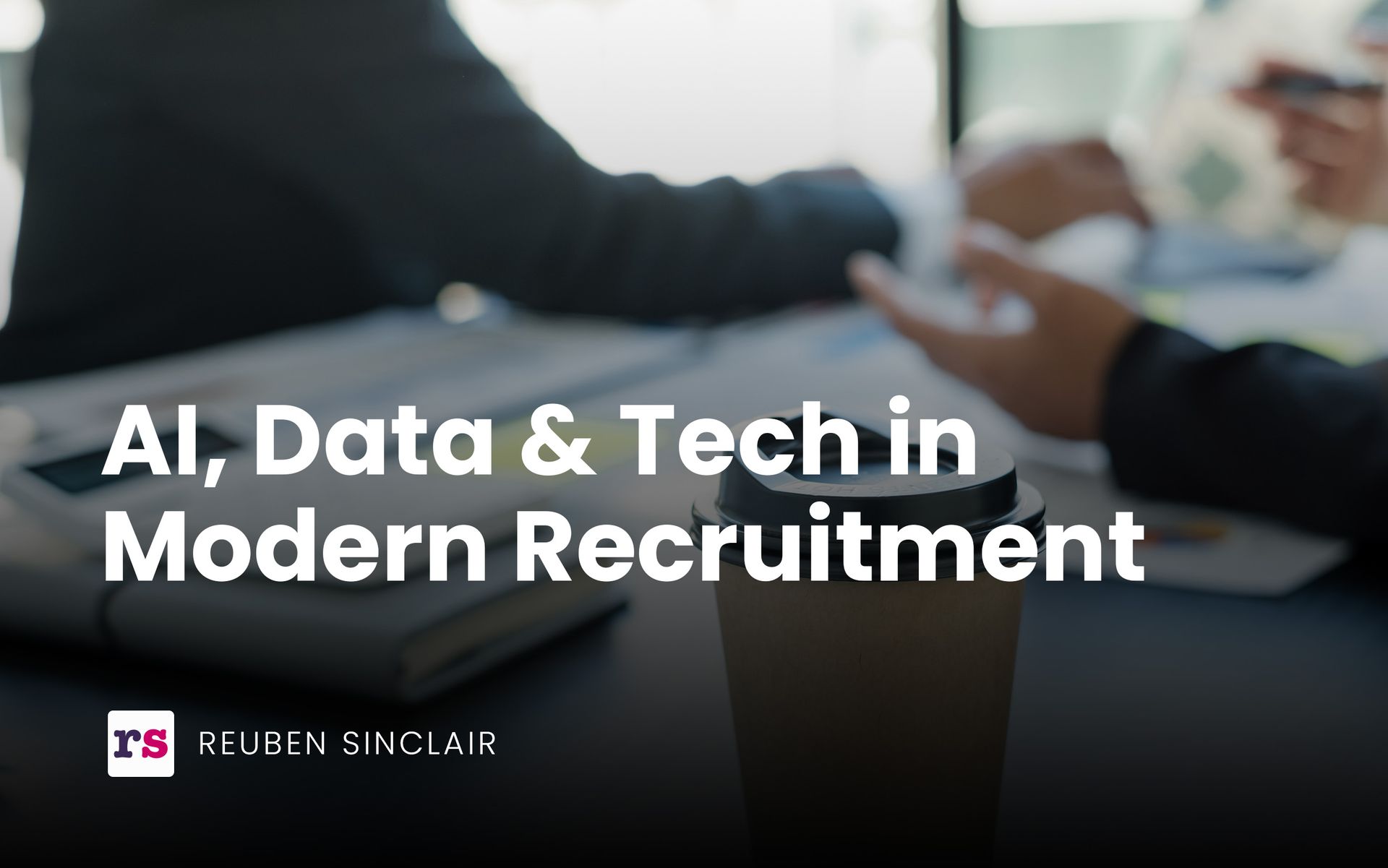PR & Comms Hiring Trends Going Into 2025

This is a subtitle for your new post
The public relations (PR) and communications industry is undergoing significant transformation, driven by technological advancements, evolving consumer expectations, and shifting global priorities.
As we move into 2025, businesses and candidates alike must stay informed about the key hiring trends shaping our industry. Below, we explore the emerging trends, in-demand skills, and strategic hiring practices defining the future of PR and communications.
The Growing Influence of Digital-First Strategies
1. Digital PR Takes Priority
With the increasing dominance of digital platforms, digital PR is no longer optional - it is essential. Companies are prioritising candidates with expertise in:
- Search Engine Optimisation (SEO) to maximise content visibility.
- Social media engagement strategies to manage brand narratives.
- Analytics tools to measure campaign success and audience sentiment.
Digital-savvy professionals who can integrate traditional PR methods with online marketing strategies are in high demand.
2. Content Marketing Integration
PR and communications teams are expected to collaborate closely with content marketing departments. This trend is driven by the rise of:
- Long-form content to establish thought leadership.
- Video storytelling as a tool to humanise brands.
- Interactive media, such as podcasts and webinars, to enhance audience engagement.
Candidates who demonstrate a knack in crafting multi-channel content strategies will stand out in 2025.
Prioritisation of Equity, Diversity, and Inclusion (EDI)
1. Building Inclusive Campaigns
Organisations are increasingly committed to creating campaigns that resonate with diverse audiences. This requires hiring professionals who:
- Have cultural competency and understand the nuances of various demographics.
- Advocate for inclusive messaging across all communication channels.
- Leverage inclusive design principles in PR materials.
2. EDI Expertise in the Workforce
Beyond campaigns, companies are looking internally to ensure their teams reflect their DEI values. Hiring managers prioritise candidates who:
- Possess a strong track record of fostering inclusive team environments.
- Can navigate sensitive topics with empathy and professionalism.
Evolving Role of Technology in PR and Communications
1. AI-Powered PR
Artificial intelligence (AI) tools are revolutionising how PR professionals approach their work. In 2025, we expect to see:
- AI-driven sentiment analysis to gauge public opinion.
- Chatbots and virtual assistants for real-time customer interaction.
- Predictive analytics to anticipate trends and craft proactive campaigns.
Professionals familiar with these tools will be indispensable to forward-thinking organisations.
2. Data-Driven Decision Making
Hiring managers are seeking individuals skilled in:
- Monitoring key performance indicators (KPIs).
- Utilising data visualisation tools to present insights clearly.
- Conducting campaign performance evaluations to inform future efforts.
Hybrid and Flexible Work Environments
1. Remote Work as the Norm
The pandemic accelerated the shift toward remote and hybrid work models. In 2025, candidates must demonstrate:
- Self-motivation and adaptability to work in flexible environments.
- Proficiency in collaboration and project management tools like Slack, Microsoft Teams, and Asana.
- Strong communication skills to maintain cohesion across dispersed teams.
2. Global Talent Pools
With remote work breaking geographical barriers, companies are tapping into global talent pools. This shift allows organisations to:
- Access niche expertise regardless of location.
- Diversify their teams, enriching creativity and innovation.
In-Demand Skills for 2025
1. Crisis Communication Expertise
With heightened social and political awareness, crisis communication remains critical. Employers are looking for candidates who can:
- Develop robust crisis response plans.
- Handle high-pressure situations with poise and precision.
- Maintain brand integrity during challenging times.
2. Influencer Collaboration
As influencer marketing continues to grow, PR professionals must know how to:
- Identify authentic influencers aligned with brand values.
- Foster mutually beneficial relationships with influencers.
- Measure the ROI of influencer partnerships effectively.
3. Strategic Storytelling
The art of storytelling is more important than ever. Candidates who excel in this area will:
- Craft compelling narratives that resonate with target audiences.
- Use data-backed storytelling to enhance credibility.
- Adapt stories for multiple platforms, from blogs to social media.
Sustainability and Purpose-Driven Communication
1. Emphasis on Environmental Responsibility
As sustainability becomes a top consumer priority, PR campaigns must highlight:
- A company’s commitment to green initiatives.
- Transparent reporting on sustainability goals.
- Advocacy for environmental causes that align with brand values.
2. Social Impact Campaigns
Beyond environmental concerns, brands are focusing on their broader societal impact. Hiring managers seek professionals who can:
- Lead corporate social responsibility (CSR) initiatives.
- Build partnerships with non-profits and community organisations.
- Amplify purpose-driven messages that connect emotionally with audiences.
The Rise of Employer Branding
1. Competing for Top Talent
In a competitive job market, companies must market themselves effectively to potential employees. Employer branding strategies for 2025 include:
- Highlighting unique workplace cultures in PR campaigns.
- Showcasing opportunities for career growth and development.
- Promoting work-life balance policies to attract a modern workforce.
2. Internal Communications Matter
Strong internal communication promotes employee satisfaction and retention. Organisations will invest in professionals who can:
- Craft engaging internal newsletters.
- Develop team-building initiatives that align with brand values.
- Maintain transparency during times of organisational change.
TL;DR
Trends suggest 2025 will continue to see innovation in PR and comms, a renewed focus on inclusivity, and the increasing importance of purpose-driven storytelling.
Businesses must adapt their hiring strategies to align with these trends, while candidates should focus on developing in-demand skills to stay competitive.
By embracing these shifts and building teams equipped for the future, organisations can strengthen their brand presence, steer challenges effectively, and achieve long-term success.











